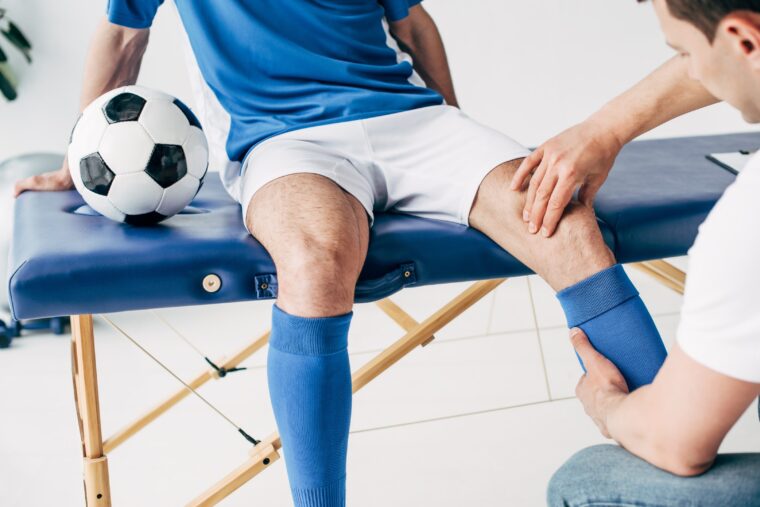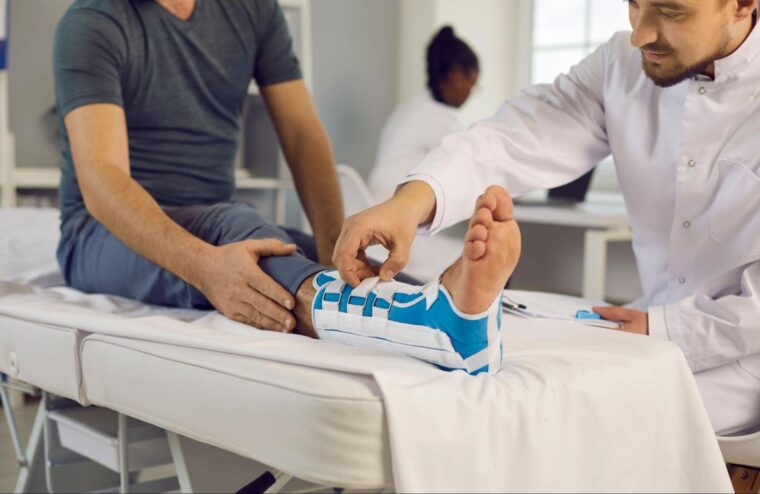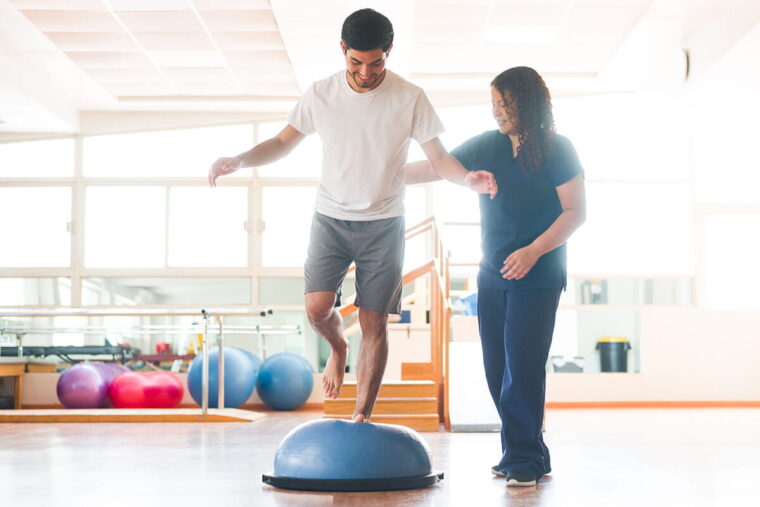Navigating the complex terrain of sports injuries demands a comprehensive understanding of orthopedic care. In this article, we delve into the crucial role of orthopedics, explore advanced treatment techniques, and demystify the recovery process.
Drawing from real-life case studies, we illustrate a roadmap to successful injury comebacks.
Welcome to ‘Back in the Game: Sports Injury Orthopedic Care Unveiled’, a concise guide to navigating the journey from injury to recovery.
Understanding Sports Injuries

The comprehension of sports injuries begins with an exploration of their inherent complexity, involving various physiological, biomechanical, and psychological factors.
A significant facet of this multifaceted subject is the development and implementation of effective injury prevention strategies. These strategies, which may include targeted training programs and equipment modifications, must be grounded in a thorough understanding of the mechanisms underlying sports injuries.
The psychological impacts of such injuries, such as fear of re-injury or performance anxiety, further complicate this picture. These elements underscore the necessity of a comprehensive approach to sports injury management, which integrates physical and psychological interventions.
Consequently, the study of sports injuries necessitates a complex, interdisciplinary perspective.
The Role of Orthopedic Care
A significant number of sports injuries necessitate orthopedic care, a specialized field dedicated to the diagnosis, treatment, rehabilitation, and prevention of injuries related to the musculoskeletal system.
This critical role is achieved through the utilization of advanced orthopedic equipment and patient counseling. Orthopedic equipment, which ranges from imaging devices to surgical tools, facilitates accurate diagnosis and effective treatment of sports injuries.
Concurrently, patient counseling is an essential part of orthopedic care as it helps patients understand their injuries, the recovery process, and preventive measures to avoid recurrence.
Through such precise, targeted care, orthopedic specialists play a pivotal role in helping athletes return to their sport, ensuring their future performance is not compromised.
Modern Treatment Techniques

In recent years, several modern treatment techniques have emerged in the field of orthopedic care, further enhancing the management and recovery process of sports injuries.
Notably, advancements in physiotherapy have revolutionized rehabilitation with personalized exercise regimes and improved pain management strategies. These techniques aim to restore normal function, maximize performance, and prevent re-injury.
Concurrently, innovative surgical techniques are playing a critical role in the management of complex sports injuries. Minimally invasive surgeries, aided by cutting-edge technology, have drastically reduced recovery time and improved surgical outcomes.
These modern techniques, combining physiotherapy advancements and innovative surgeries, are actively transforming orthopedic care, enabling athletes to return to their sport sooner and healthier.
The Recovery Process Unveiled
How does the recovery process after sports injuries unfold under the guidance of modern orthopedic care?
The complexity of this process is rooted in a multifaceted approach, integrating physiological healing with mental resilience. Recognizing the psychological impact of injuries, orthopedic care now includes strategies to foster mental strength, aiding athletes in overcoming fears and anxieties associated with their injuries.
Equally critical is the nutrition importance in this process. Proper nutrition accelerates tissue repair, strengthens the immune system, and reduces inflammation. A balanced diet, rich in protein, vitamins, and minerals, is usually recommended.
Thus, the orthopedic recovery process is an intricate interplay between the physical and mental aspects of health, underscoring the comprehensive nature of modern orthopedic care.
Case Studies: Successful Comebacks

Let’s turn our attention to some inspiring examples of athletes who, thanks to expert orthopedic care, have made triumphant comebacks after serious sports injuries. A vital component of these success stories is psychological resilience. Athletes such as Paul George, who suffered a compound fracture in his leg in 2014, exemplify this. His journey back to the court was a testament to both his physical recovery and mental fortitude.
Another crucial factor is athlete motivation. Peyton Manning, despite multiple neck surgeries, demonstrated unyielding determination to rehabilitate and returned to the NFL, eventually winning another Super Bowl.
These instances highlight the synergy between expert orthopedic care, psychological resilience, and athlete motivation in ensuring successful sports injury comebacks.
Frequently Asked Questions
What Are the Costs Associated With Sports Injury Orthopedic Care?
Costs associated with sports injury orthopedic care vary significantly, making cost comparison crucial. Expenses can include consultation fees, diagnostic tests, surgery, rehabilitation, and ongoing treatments, necessitating careful financial planning for potential patients.
How Does Emotional or Psychological Support Play a Role in Recovery From Sports Injuries?
Emotional and psychological support enhances mental resilience, crucial for recovery from sports injuries. It mitigates stress, fosters positivity, and encourages adherence to rehabilitation processes. Support networks provide this vital emotional backing, significantly influencing healing outcomes.
What Insurance Plans Typically Cover Orthopedic Care for Sports Injuries?
Insurance coverage for orthopedic care in sports injuries varies. Most health insurance plans, including Medicare and Medicaid, generally cover it. However, insurance eligibility and coverage limitations depend on the specific policy and provider.
How Does the Level of Athletic Performance Impact the Treatment Plan for Sports Injuries?
The level of athletic performance significantly influences the treatment plan for sports injuries, dictating the intensity of injury prevention strategies and the complexity of rehabilitation techniques employed to expedite recovery and optimal performance restoration.
Are There Specific Dietary or Nutrition Guidelines to Follow During the Recovery Process From a Sports Injury?
Yes, nutritional guidelines play a crucial role in injury healing. Adequate protein, vitamins, and minerals are essential. Nutritional supplements may be recommended to support tissue repair and manage inflammation during recovery from a sports injury.
